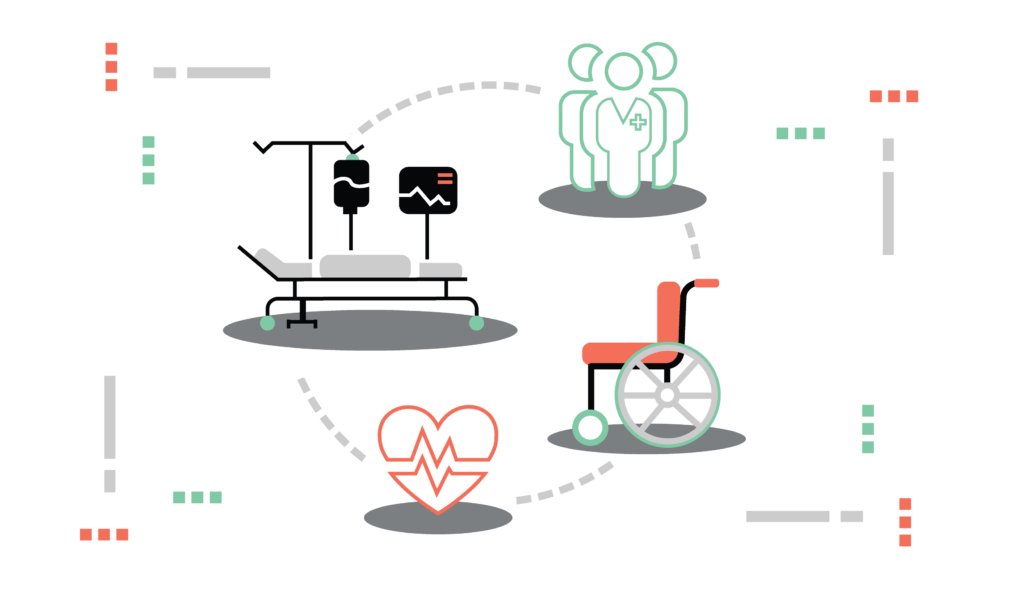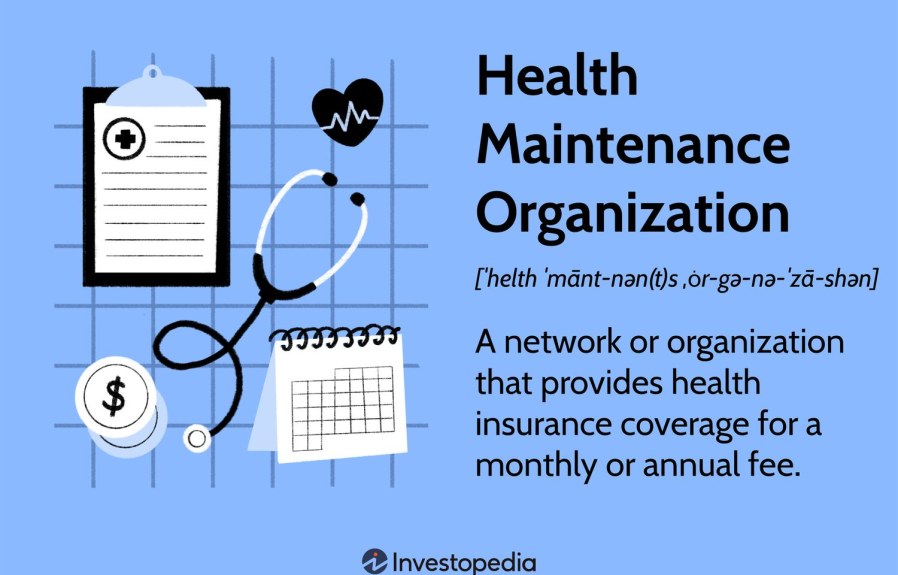Group Health Insurance is characterized by offering coverage to a group of people rather than individuals. One key aspect is affordability due to the shared risk pool.
Employers generally provide group health insurance to their employees to ensure they have access to medical care. This type of insurance also enables coverage for pre-existing conditions and typically has lower premiums compared to individual plans. Group health insurance fosters a sense of community and support among members in times of illness or injury.
It offers comprehensive benefits that cater to the diverse healthcare needs of a group, ensuring access to quality healthcare services for all members.
What Is Group Health Insurance?
Group health insurance is a type of health insurance coverage that is provided to a group of people, typically employees of a company or members of an organization. It is an employer-sponsored insurance plan that offers coverage to eligible members and their dependents. Group health insurance is an important benefit that can provide financial protection and access to medical care for individuals and their families.
Definition
Group health insurance is a health insurance policy that provides coverage to a defined group of people, such as employees of a company or members of an organization. It is a form of health insurance that is offered by an employer or organization to its eligible members and their dependents.
Features
- Group health insurance offers coverage to a group of individuals under a single policy.
- It is typically more cost-effective than individual health insurance.
- Employers or organizations often contribute to the premium costs, making it more affordable for employees or members.
- Group health insurance plans may include a range of benefits, such as inpatient and outpatient care, preventive services, prescription drug coverage, and more.
- It provides a sense of security and peace of mind for members and their families, knowing they have access to medical care when needed.
Advantages Of Group Health Insurance
Cost-effective
In group health insurance, costs are distributed among members, making premiums more affordable.
Comprehensive Coverage
Group health plans offer extensive coverage for essential medical services and treatments.
Key Considerations
Group health insurance has many key considerations to take into account, including coverage options, premiums, and network providers and hospitals.
Affordability
Affordability is a key consideration when it comes to selecting group health insurance. Costs play a crucial role as businesses need to find a plan that fits within their budget while still providing comprehensive coverage for employees. Comparing premiums, deductibles, and copayments can help evaluate which plans offer the best value for money. It’s important to strike a balance between affordability and the level of coverage provided to ensure that employees have access to the healthcare they need without breaking the bank.Coverage Limits
Coverage limits are another important factor to consider when deciding on a group health insurance plan. These limits determine the maximum amount an insurance policy will pay for medical services and treatments. Understanding these limits is crucial for businesses and their employees to avoid unexpected expenses or gaps in coverage. It’s important to review the specific coverage limits for different medical services such as hospital stays, surgical procedures, and prescription medications to make an informed decision. Some plans may have higher limits and offer more comprehensive coverage but may also come with higher premiums, while others may have lower limits and lower premiums.Plan Flexibility
Plan flexibility is an important consideration when selecting a group health insurance plan. Businesses should assess whether the plan allows them to tailor coverage to their specific needs. This may include adding dental or vision coverage, choosing between different provider networks, or offering additional wellness programs. Flexibility is essential to ensure that the insurance plan aligns with the specific healthcare needs of the employees, resulting in increased satisfaction and overall well-being.Network Providers
The network of healthcare providers covered by the insurance plan is another crucial consideration. Ensuring that there are a sufficient number of in-network providers in the desired location is vital to ensure that employees have access to quality healthcare. Reviewing the provider directory can help determine whether employees’ preferred doctors and hospitals are included in the network. Additionally, it’s important to consider the ease of finding and accessing healthcare providers within the network, especially in emergencies or urgent situations.Employee Needs
Considering the unique healthcare needs of employees is essential when selecting a group health insurance plan. Different employees may have varying medical conditions or personal situations that require specific coverage options such as maternity care, mental health services, or pre-existing condition coverage. Taking into account the demographics and overall health of the workforce can help choose a plan that meets their specific needs, ensuring that they receive the appropriate care when required.:max_bytes(150000):strip_icc()/Investopedia-terms-termlife-6451fde927474d4f8a81a5681efd393f.jpg)
Credit: http://www.investopedia.com
Understanding Unaffordability
Group health insurance is renowned for providing comprehensive coverage to employees and is characterized by several advantages like affordability, access to a wide network of healthcare providers, and simplified administration. However, it is also important to acknowledge the aspects that contribute to unaffordability in group health insurance. Understanding these factors is crucial for employers and employees alike, as it helps in devising strategies to tackle this challenge effectively.
Factors Contributing To Unaffordability
Several factors come into play when it comes to understanding the unaffordability of group health insurance. These include:
- Increasing healthcare costs: The rising costs of medical treatments, prescription drugs, and healthcare services greatly impact the affordability of group health insurance. Employers are burdened with higher premiums, while employees may also face increased out-of-pocket expenses.
- Inflation of insurance industry: The constant inflationary pressure on the insurance industry adds to the overall cost of group health insurance. Insurers are required to adjust premiums to cover increased expenses, leading to higher costs for employers and employees.
- Mandatory coverage requirements: Mandatory requirements for specific coverage options, such as mental health or maternity benefits, can significantly impact the affordability of group health insurance plans. While these are undoubtedly important, their inclusion raises the overall cost of insurance premiums.
- Demographic factors: The age and health demographics of the employee population also contribute to the affordability of group health insurance. Older employees or those with pre-existing conditions are more likely to require costly medical treatments, which can increase the insurance premiums for everyone.
Impact On Employers And Employees
The unaffordability of group health insurance has significant repercussions for both employers and employees.
For employers, the increasing cost of premiums places a strain on their budget and financial resources. This can result in difficult decisions regarding employee benefits and even potential downsizing. Additionally, employers may have to shift a larger portion of the costs to their employees, which can affect employee satisfaction and retention.
Employees, on the other hand, face the burden of rising healthcare costs and higher deductibles. This can lead to financial strain and limited access to necessary healthcare, especially for those with lower incomes. The unaffordability of group health insurance can also create barriers for individuals seeking employment, as potential job candidates consider the cost of healthcare coverage when evaluating job offers.
In conclusion, understanding the factors contributing to the unaffordability of group health insurance is essential for employers and employees. By acknowledging these challenges, employers can explore alternative insurance solutions or implement cost containment strategies, while employees can assess their healthcare needs and make informed decisions regarding coverage options.
Exploring Limited Coverage
Group health insurance is characterized by various limitations that policyholders need to be aware of. Among these limitations, limited coverage is a significant aspect that impacts the scope of benefits available to members.
Types Of Limitations
Waiting periods, exclusions for pre-existing conditions, and caps on certain treatments are common limitations found in group health insurance policies.
Implications For Policyholders
These limitations can lead to higher out-of-pocket costs, restricted access to certain services, and limitations on choice of healthcare providers for policyholders.

Credit: http://www.tdi.texas.gov
Alternative Options
When it comes to group health insurance, there are several alternative options that individuals and businesses can explore. Whether it’s individual health insurance or health savings accounts, having a clear understanding of these options can help in making informed decisions to meet healthcare needs.
Individual Health Insurance
Individual health insurance is an alternative option for those who are not covered by group health insurance plans. It provides coverage for an individual and their family members, offering flexibility in choosing the desired level of coverage based on specific needs and budget constraints. With individual health insurance, individuals have the autonomy to select a plan that aligns with their healthcare requirements, providing a customized solution for their medical needs.
Health Savings Accounts (hsa)
Health Savings Accounts (HSA) serve as another alternative for managing healthcare expenses. It allows individuals to set aside pre-tax income for qualified medical expenses, providing a tax-advantaged way to save for healthcare costs. HSAs are accompanied by high-deductible health plans, where the savings can be utilized for various medical expenses, including deductibles, copayments, and other eligible healthcare services. With the ability to roll over unused funds from year to year, HSAs provide long-term savings and financial security for future medical needs.
Impact On Employee Satisfaction
Group health insurance has a significant impact on employee satisfaction, affecting various aspects of their work life. Let’s delve into how it influences employee retention and workplace productivity.
Employee Retention
Group health insurance enhances employee retention. When employees have access to comprehensive health coverage, they are more likely to remain with the company. This benefit demonstrates the employer’s commitment to their well-being, making employees feel valued and less likely to seek opportunities elsewhere.
Workplace Productivity
Improved health insurance positively affects workplace productivity. It reduces absenteeism due to illness, ensuring that employees remain healthy and present in the workplace. Additionally, it enhances morale, allowing employees to focus on their work rather than worrying about health-related expenses.

Credit: healthpolicy.usc.edu
Frequently Asked Questions On Group Health Insurance Is Characterized By All Of The Following Except
Which Is Not A Characteristic Of Group Health Insurance?
A characteristic that is not present in group health insurance is individual underwriting based on personal medical history.
Which Of The Following Statement Is Incorrect Regarding Group Health Insurance?
An incorrect statement about group health insurance is that all employees must participate.
Which Of The Following Is Not True Regarding A Group Insurance Plan?
Group insurance plans do not cover only individuals.
What Is Typically Not Eligible For Coverage In A Group Health Policy?
Group health policies typically do not cover cosmetic procedures, experimental treatments, infertility treatments, weight-loss programs, and elective surgery.
Conclusion
In a nutshell, group health insurance offers several benefits, including cost-effectiveness and comprehensive coverage options. Despite its advantages, it’s important to understand its limitations. Group health insurance may not cater to specific individual needs, limit provider choices, and require employer participation.
Make informed decisions when evaluating your health insurance options.
{ “@context”: “https://schema.org”, “@type”: “FAQPage”, “mainEntity”: [ { “@type”: “Question”, “name”: “Which is not a characteristic of group health insurance?”, “acceptedAnswer”: { “@type”: “Answer”, “text”: “A characteristic that is not present in group health insurance is individual underwriting based on personal medical history.” } } , { “@type”: “Question”, “name”: “Which of the following statement is incorrect regarding group health insurance?”, “acceptedAnswer”: { “@type”: “Answer”, “text”: “An incorrect statement about group health insurance is that all employees must participate.” } } , { “@type”: “Question”, “name”: “Which of the following is not true regarding a group insurance plan?”, “acceptedAnswer”: { “@type”: “Answer”, “text”: “Group insurance plans do not cover only individuals.” } } , { “@type”: “Question”, “name”: “What is typically not eligible for coverage in a group health policy?”, “acceptedAnswer”: { “@type”: “Answer”, “text”: “Group health policies typically do not cover cosmetic procedures, experimental treatments, infertility treatments, weight-loss programs, and elective surgery.” } } ] }


Leave a comment